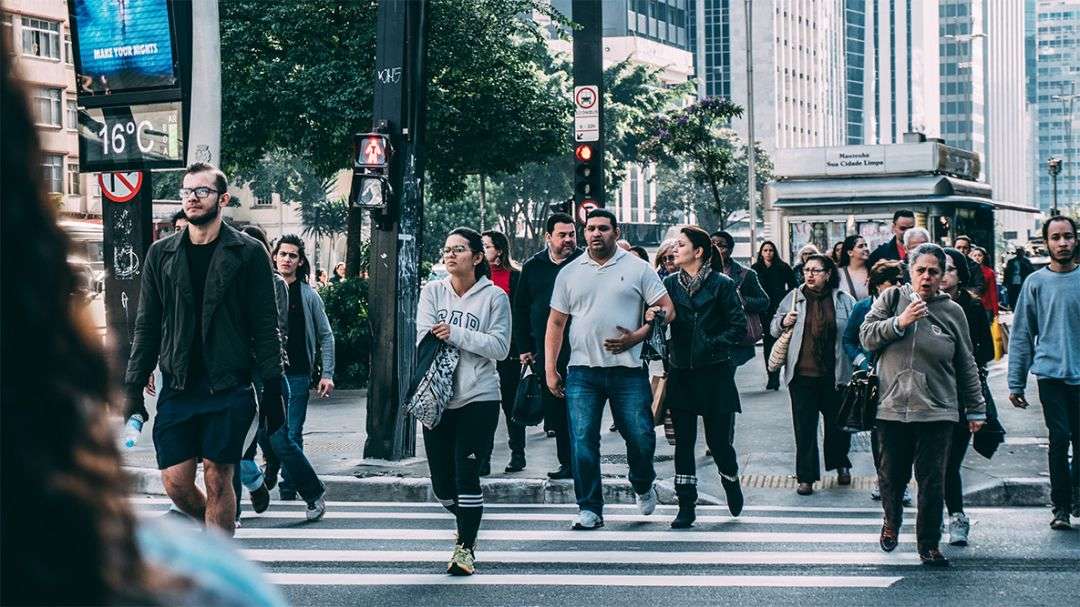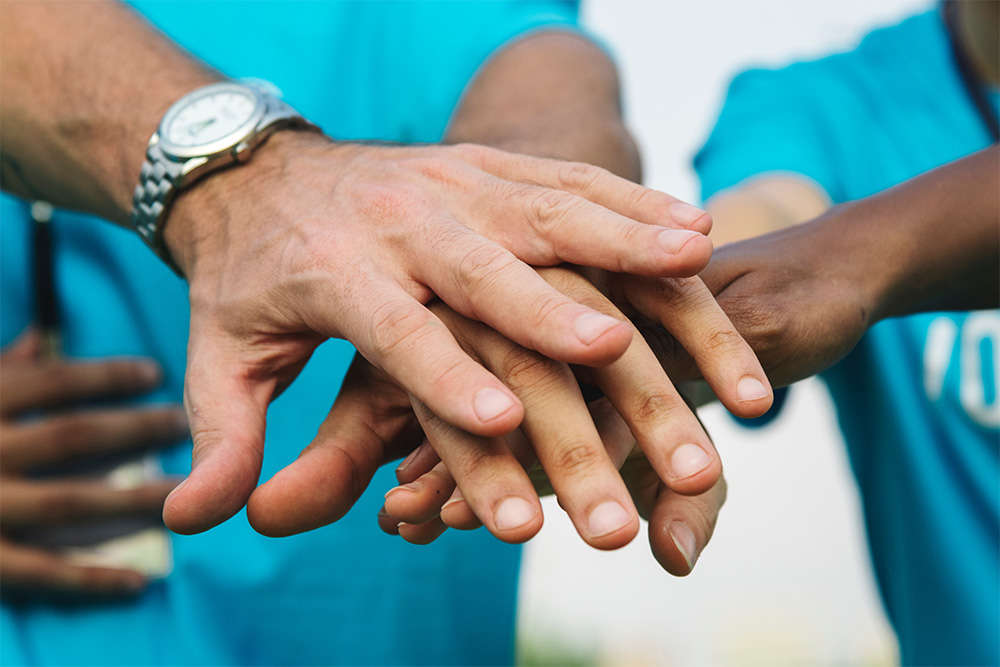Very friendly and super helpful with any questions I had. Very clean and calm atmosphere, all the staff were kind.
Read More
What Is Herd Immunity and How Can It Benefit Me (And My Community)?
Posted: Jul 11th, 2019 at 12:00AM

There's safety in numbers. This saying can apply to many situations, but here's one you may not have thought of before: vaccinations. Herd immunity (also known as community immunity) is defined by Vaccines Today as "a form of immunity that occurs when the vaccination of a significant portion of a population provides a measure of protection for individuals who have not developed immunity."
This means that when the majority of a population is vaccinated against a virus or bacteria, outbreaks are drastically reduced. And even those who are most vulnerable to getting sick (or cannot be vaccinated for various reasons) are much less likely to get infectious diseases.
As Vaccines Today explains, "[Herd immunity] is particularly crucial for protecting people who cannot be vaccinated. These include children who are too young to be vaccinated, people with immune-system problems, and those who are too ill to receive vaccines (such as some cancer patients)."

Preventing Community Outbreaks With Herd Immunity
Germs travel quickly. From doorknobs and desks to sniffles and sneezes, we're constantly exposed to germs that can lead to infectious diseases.
In fact, the Centers for Disease Control and Prevention (CDC) states that: "Illnesses like the flu spread from person to person when droplets from the cough or sneeze of an infected person move through the air and get into the mouth or nose of people nearby. The germs in these droplets can often also live on surfaces, such as desks or doorknobs, for two hours or longer and can spread when people touch these surfaces and then touch their eyes, mouth, and nose."
If enough people get vaccinations, however, germs can't spread as easily and outbreaks are less likely to occur. This remains true even if a small portion of a community gets sick. Fewer cases mean fewer germs out there to spread, which adds up to less infectious disease overall.
For example, as the Oxford Vaccine Group explains, "Before the use of the measles vaccine, every person with measles would infect another 10-15 people and so the disease would spread very quickly."
This highlights why it's so crucial that the majority of the population gets vaccinated. With mass vaccinations, outbreaks are kept at bay and confirmed cases of various diseases — like the measles — are few and far between.

Myths About Herd Immunity
If an infectious disease has been eradicated, there is no reason to get vaccinated, right? Wrong.
Community immunity can — and will — be lost if communities stop vaccinating against various infectious diseases en masse.
As Vaccines.gov says, "Many vaccine-preventable diseases that we don't see much in the United States still make people sick in other countries. So, it's possible for travelers to bring these diseases back to the United States, where they could then spread. If we stop getting vaccinated, we won't be protected from these diseases _ community immunity protects us only if enough people continue to get vaccinated."
Overseas travelers, both U.S.-based and foreign, are at risk of being the unintended carriers of infectious diseases — which would then also put anyone they come in contact with at risk if they haven't been vaccinated.
The CDC agrees: "Disease rates are low in the United States today. But if we let ourselves become vulnerable by not vaccinating, a case that could touch off an outbreak of some disease that is currently under control is just a plane ride away."
Another dangerous myth of community immunity is that foregoing vaccinations completely is the safer option — the belief of anti-vaxxers who are convinced vaccines could make you sick with the disease they're meant to protect you against or worse.
But these telling statistics from the CDC share a different story:
- Nearly everyone in the U.S. got measles before there was a vaccine, and hundreds died from it each year. Today, most doctors have never seen a case of measles.
- More than 15,000 Americans died from diphtheria in 1921, before there was a vaccine. Only two cases of diphtheria have been reported to the CDC between 2004 and 2014.
- An epidemic of rubella (German measles) in 1964-65 infected 12½ million Americans, killed 2,000 babies, and caused 11,000 miscarriages. Since 2012, 15 cases of rubella were reported to CDC.
These numbers are promising, but contrary to what some people believe, a disease that has been drastically reduced and even wiped out can still return, if we fail to get vaccinated. For instance, look at the growing measles outbreak in Europe, which could very easily spread to the United States. (Fortunately, measles is very preventable — if you get the vaccination.)

Staying Healthy
Whether it's a sick coworker, child, spouse, friend, or even a stranger, you're bound to come into contact with infectious diseases at some point. But if the majority of a community gets vaccinated (rather than just some), that risk decreases greatly.
Community immunity also helps to protect the most vulnerable among us who can't get vaccinated: babies, the elderly, and those with weakened immune systems from cancer, HIV/AIDS, type 1 diabetes, and other health conditions. For those of us who can get vaccinated, it's our responsibility to protect anyone who can't.
The expression "the whole is greater than the sum of its parts" fits nicely here. By embracing community immunity, individuals who get vaccinated ensure the community as a whole is much stronger, healthier, and less likely to be stricken with an infectious disease than it would've been otherwise.
 It's a way to keep the population healthy while lessening the likelihood of dangerous outbreaks to occur.
It's a way to keep the population healthy while lessening the likelihood of dangerous outbreaks to occur.
Yes, there's no doubt that there is safety in numbers — but only if the majority of the population is willing to take the steps needed to help ensure mass protection from illness. If everyone begins to mistakenly believe that they're protected because other people get vaccinated, we're all headed for trouble.
Ready to get vaccinated? Contact us today to request more information or to make an appointment. If you're not sure what you're already immune to, ask us about how blood titers can help you figure out which vaccines you need.

I came to E7 health for a physical exam for employment. Staff was very professional, And I was in and out in thirty minutes
Read More
Staff was extremely friendly, I was able to walk in without an appointment.
Read More
Very friendly, informative, and well versed. Felt well taken care of by the doctor and all the staff. Fast, friendly, considerate, all staff met.
Read More
I was here for an employment physical. They are amazing! I was in and out in less than 10 mins.
Read More
J was super helpful. Very quick and easy.
Read More
Rachel was amazing and I was in and out so quick ! Ready to start my new job ! Thanks 🥰
Read More
J was awesome at talking me through my first time getting blood taken. The doctor that also did my physical was quick and very thorough when letting me know the next steps for getting the test results back :)
Read More
















